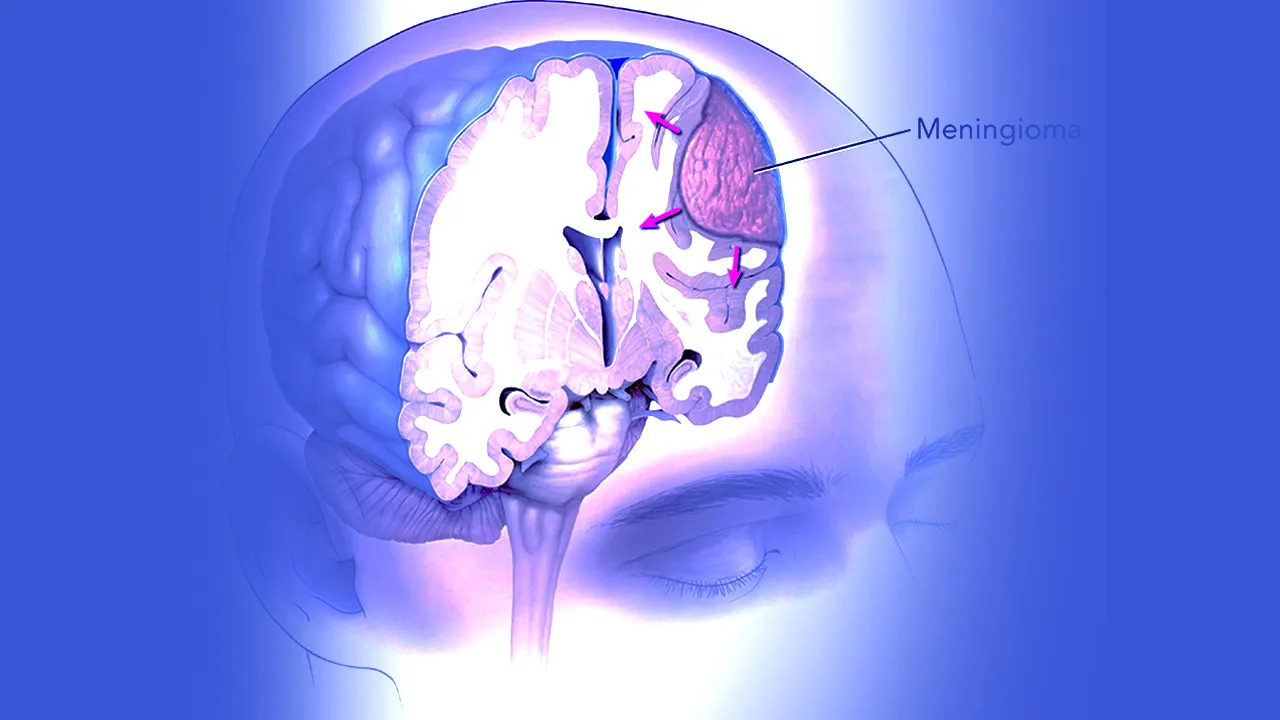Meningioma is a type of brain tumor that develops in the meninges, the protective membranes surrounding the brain and spinal cord. These tumors are usually slow-growing and benign, but they can still cause serious health problems if they grow large enough to pressure the brain or spinal cord.
The exact cause of meningioma is unknown, but several risk factors have been identified. These include:
• Age: Meningiomas are more common in older adults, with most cases occurring in people over 60.
• Gender: Women are more likely to develop meningiomas than men.
• Radiation exposure: People exposed to high radiation levels, such as those who have undergone radiation therapy for other types of cancer, are at an increased risk of developing meningiomas.
• Genetic factors: Some rare genetic conditions, such as neurofibromatosis type 2, can increase the risk of developing meningiomas.
The symptoms of meningioma can vary depending on the location and size of the tumor. Some common symptoms include:
• Headaches: Meningiomas can cause persistent headaches that are often worse in the morning.
• Seizures: If the tumor is located in the part of the brain that controls seizures, it can cause seizures.
• Vision problems: Meningiomas that grow near the optic nerve can cause vision problems, such as double vision or loss of sight.
• Weakness or numbness: If the tumor is located in the part of the brain that controls movement or sensation, it can cause weakness or numbness in the arms or legs.
• Personality changes: Meningiomas in the brain’s frontal lobe can cause personality changes, such as aggression or apathy.
If a meningioma is suspected, a neurological exam will check for brain or spinal cord abnormalities. They may also order imaging tests, such as a CT scan or MRI, are also requested to get a better look at the tumor.
If the imaging tests show a tumor, a biopsy may be performed to confirm the diagnosis. During a biopsy, a small tumor sample is removed and examined under a microscope to determine if it is cancerous or benign.
Treatment of Meningioma:
The treatment for a meningioma depends on several factors, including the size and location of the tumor and the patient’s overall health. Some standard treatment protocols include:
• Observation: If the tumor is small and not causing any symptoms, the doctor may recommend monitoring it with regular imaging tests.
• Surgery: If the tumor is large or causes symptoms, surgery may be necessary to remove it. In some cases, the entire tumor can be removed, while in others, only a portion can be removed.
• Radiation therapy: If the tumor cannot be completely removed with surgery, radiation therapy may shrink the tumor and slow its growth.
• Chemotherapy: Chemotherapy is not typically used to treat meningiomas, as it is usually slow-growing and not responsive to chemotherapy.
Meningioma is a brain tumor that can cause serious health problems if left untreated. While the exact cause of meningioma is unknown, several risk factors have been identified. However, many meningioma patients can live healthy lives with early detection and treatment.

Comments are closed.